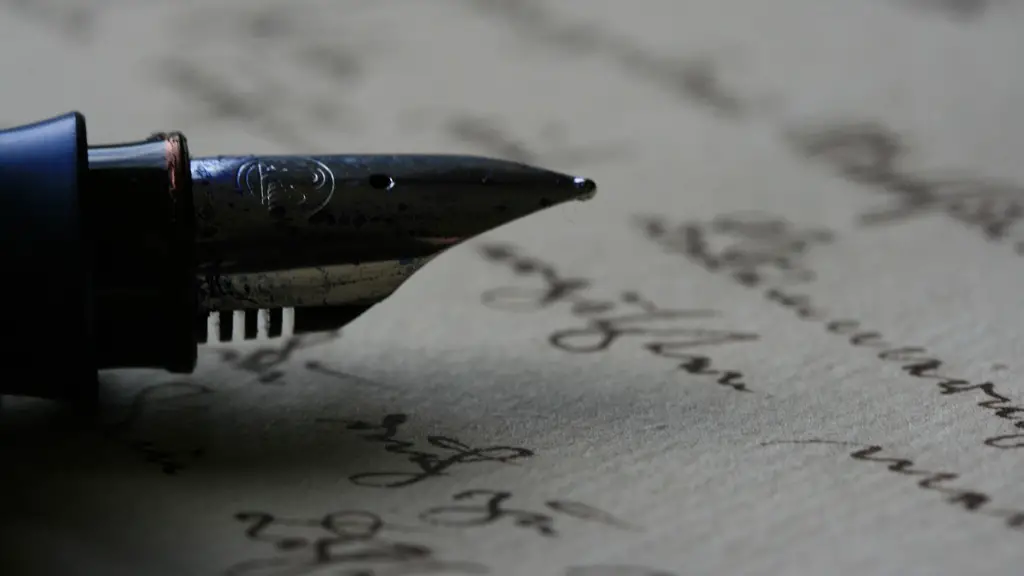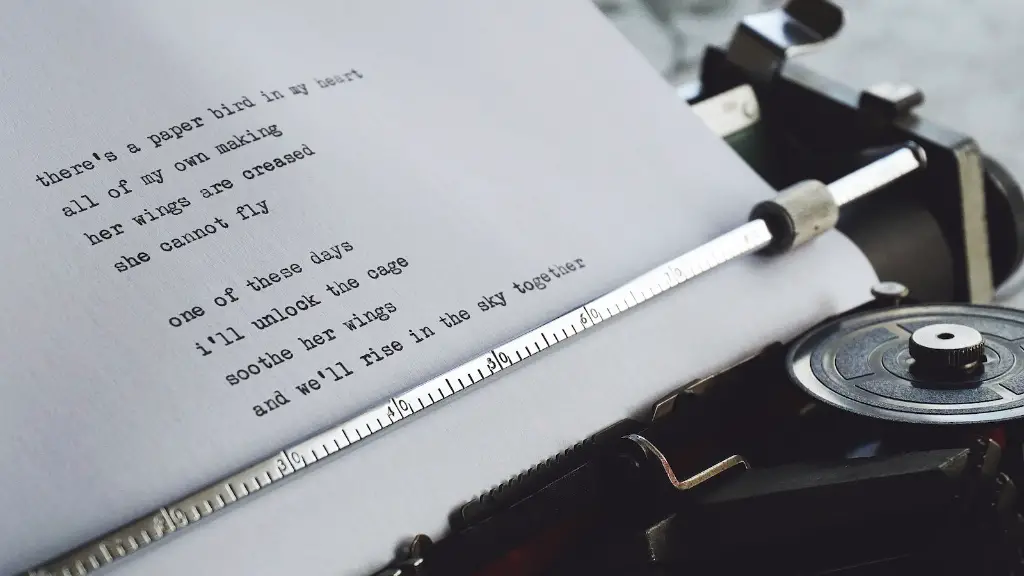Poetry is one of the oldest forms of literature. It has been used for centuries to express feelings, emotions, and thoughts in words that create a beautiful and powerful representation of the beauty of life. And within the vast array of poetic devices, one of the most important is irony. Irony is used to communicate a more profound insight into a particular situation and can create an effect that’s often more complex and interesting than a straightforward description could ever be.
Irony in poetry can be divided into two categories: verbal irony and situational irony. Verbal irony is when the writer’s words do not mean what they appear to mean. For example, the writer might say something that’s the opposite of what they actually mean or use sarcasm in order to make a point. Situational irony is when a situation unfolds in an unexpected or unusual way.
The main aim of irony in poetry is ultimately to educate and engage the reader. It is used to convey a deeper meaning or as a way of highlighting the complexities of life. Irony can also add a layer of humour or a subtle emotional punch to a poem, allowing the poet to express a range of different feelings and thoughts.
In order to use irony effectively, the writer needs to be able to create tension between what the words say and what the audience reads into the words. It’s important to be aware that irony can be a dangerous tool if not used appropriately. If used without respect for the reader’s feelings, it can easily cause offense.
Irony in poetry can also be used to create a certain tone or mood. It can be used as a narrative device, to draw out unexpected contrasts, or to create suspense and raise questions in the reader’s mind. It also allows the poet to express difficult and complex ideas in a more elegant, thoughtful way.
As well as being a compelling literary device, irony in poetry is also a useful tool for those who are looking to better understand a particular situation or concept. Through the use of irony, the poet is able to bring a range of ideas and perspectives to the forefront, allowing the reader to gain a deeper understanding of the subject matter.
Irony in Poetry in Different Cultures
Irony in poetry can be found in all cultures, although it takes a slightly different form in each. In Eastern cultures, for example, irony can be used to express the idea of detachment in order to gain a clearer perspective. In Western cultures, on the other hand, irony is often used as a way of highlighting the absurd realities of life.
No matter what cultural background the irony comes from, it is always used to provide a deeper meaning and insight into the poem. Additionally, it can also be a useful tool in uncovering the deeper meanings and truths that are often hidden in plain sight. Irony can be used to challenge the reader to think outside the box, to question their own beliefs and to take a closer look at the underlying meanings behind the words.
Irony in Poetry as a Tool for Exploring Human Experiences
Irony in poetry can also be used to explore the many different aspects of human experiences. By using irony, the poet is able to explore topics such as love, loss, hope, despair and even death in a more subtle, nuanced way. They can draw attention to the frailties and complexities of life without the need for direct pronouncements and dramatic declarations.
In this sense, irony in poetry can be seen as a tool for self-discovery and exploration. It allows the poet to delve into the depths of their own emotions and experiences as well as to discover new perspectives and possibilities. Irony also adds an extra dimension to a poem, allowing the reader to experience a wide range of emotions and to gain a better understanding of the poet’s inner life.
Irony in Poetry as a Way of Reminding Us of the Power of Silence
Finally, irony in poetry can also be used as a way of reminding us of the power of silence. By using irony, the poet can communicate more than just words- they can also communicate a feeling of stillness, of just being in the moment and of understanding the power of being without saying anything. Irony is often used to communicate a more subtle, layered message that encourages the reader to take their time to appreciate the complexities of life and the richness of experience.
Irony in Poetry to Create a Synthesis
Irony in poetry can also be used to create a synthesis between opposing views or ideas. It can be a powerful tool to create bridges between disparate points of view and to create a more holistic perspective of the world. Irony in poetry allows the writer to consider multiple perspectives at the same time and can be an effective way to bring together diverse opinions in order to create a richer, more complex understanding of a particular situation.
Irony in Poetry as a Tool for Encouraging Empathy
Finally, irony in poetry is also a useful tool in encouraging empathy. By deliberately making the reader think differently and consider alternative perspectives, the poet is able to create an environment in which the reader is encouraged to adopt a more compassionate and understanding attitude. In this way, the poet is not only conveying ideas, but also creating a safe space for the reader to explore their own feelings and experiences.



